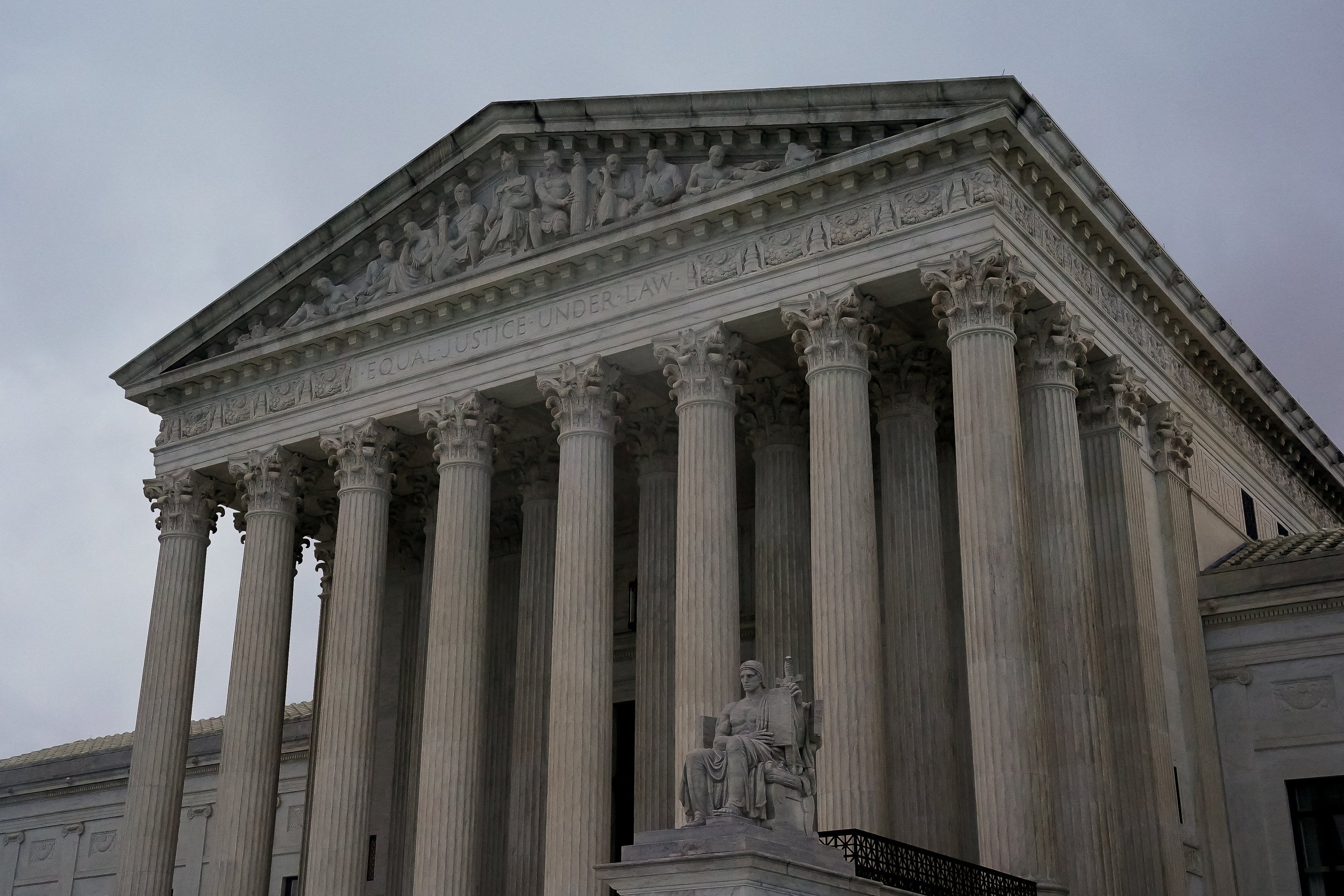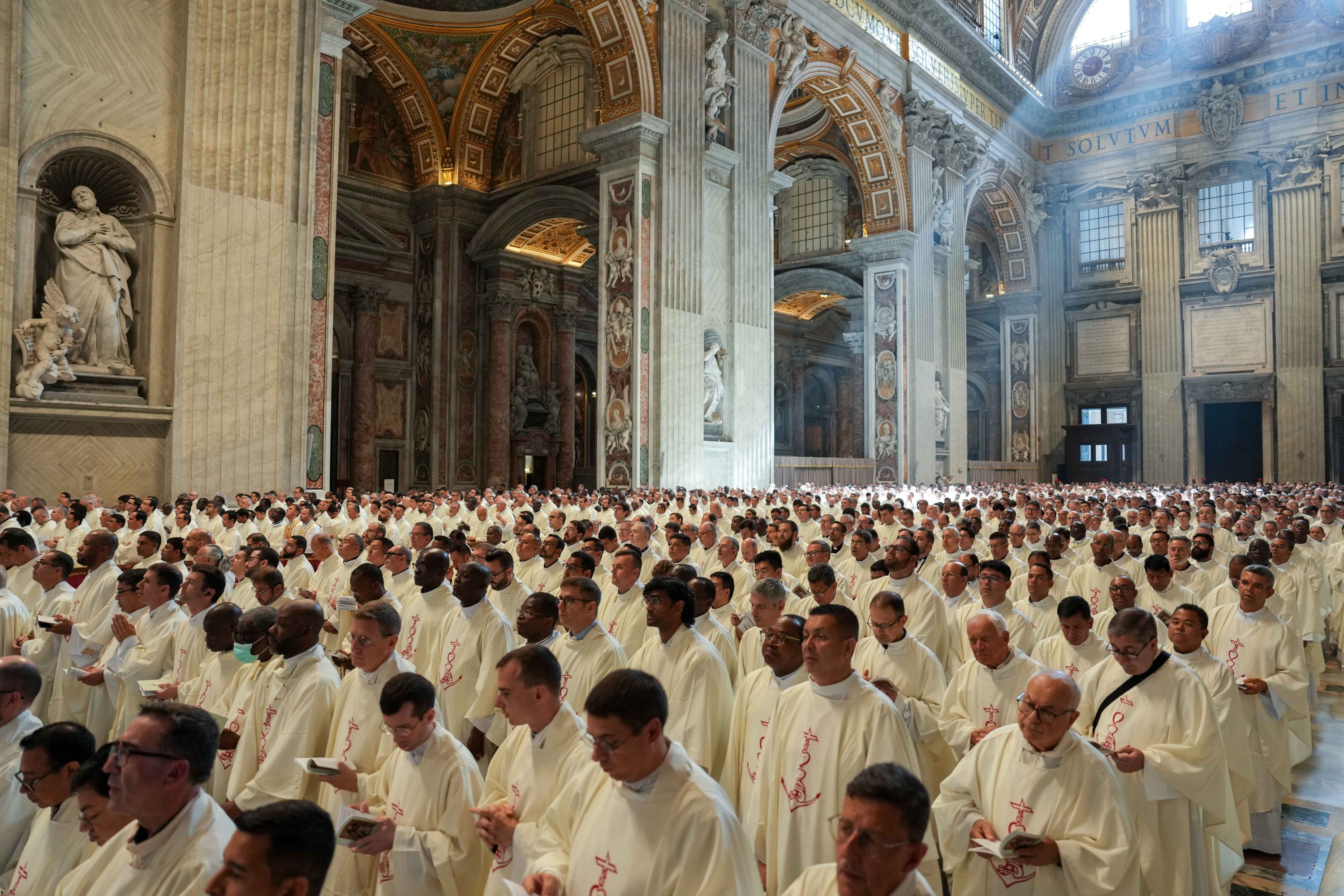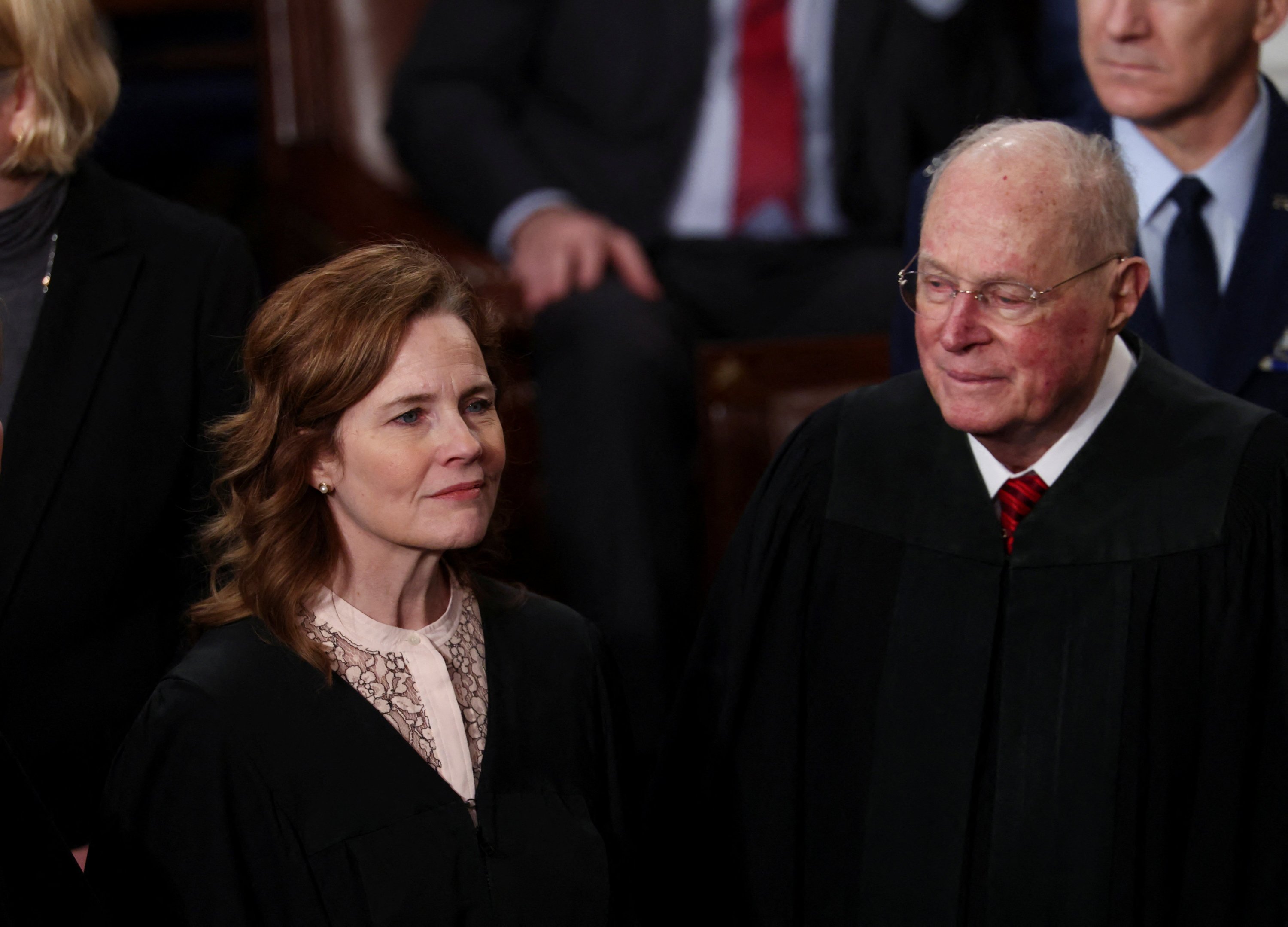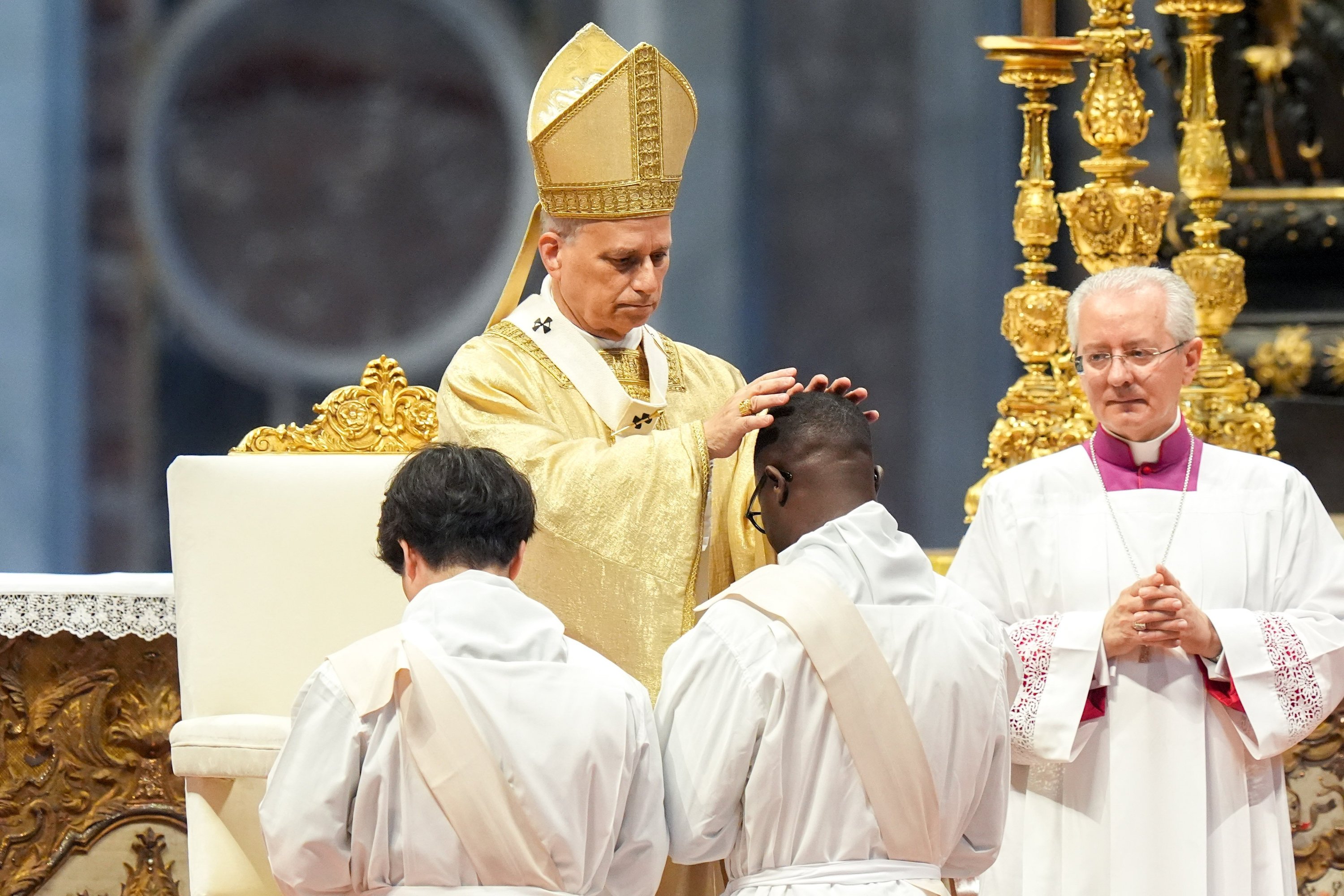Posted on 06/28/2025 00:00 AM (CNA - Saint of the Day)
 St. Vincentia Gerosa
St. Vincentia Gerosa
Feast date: Jun 28
Vincentia Gerosa was declared a saint in the 20th century. She came to her vocation as a religious sister late in life. She was born Caterina Gerosa in Lovere, Italy, in 1784. She was orphaned as a young girl and spent 40 years as a homemaker and lay woman, dedicating herself to the poor.
In 1832, she and St. Bartholomea Capitanio formed the Sisters of Charity of Lovere, with a charism to care for and educate the poor. She took the religious name Vincentia, and led the congregation after Bartholomea died in 1836, until her own death 11 years later. She was beatified in 1926 and canonized by Pope Pius XII in 1950.
Posted on 06/28/2025 00:00 AM (CNA - Saint of the Day)
 St. Elizabeth of Schonau
St. Elizabeth of Schonau
Feast date: Jun 28
St. Elizabeth was a Benedictine visionary, who had the gift of prophecy. She also suffered the assaults of demonic forces.
Elizabeth was born in Bonn, Germany, in 1126. She was raised and educated in a Benedictine monastery near her birthplace from the age of 12. Elizabeth came to see the monastery as home, and she took vows in 1147.
With the help of her brother Egbert, a monk and abbot, she wrote three volumes describing her visions.
She served as the abbess at Schonau from 1157 until her death in 1164.
St. Elizabeth was never formally canonized but was added to the list of saints due to great popular devotion.
Posted on 06/28/2025 00:00 AM (CNA - Saint of the Day)
 St. Irenaeus
St. Irenaeus
Feast date: Jun 28
Celebrated by the Roman Catholic Church on June 28, and by Eastern Catholics of the Byzantine tradition on August 23, Saint Irenaeus of Lyons was a second-century bishop and writer in present-day France.Pope Benedict XVI spoke admiringly of St. Irenaeus in a 2007 general audience, recalling how this early Church Father “refuted the Gnostic dualism and pessimism which debased corporeal realities. He decisively claimed the original holiness of matter, of the body, of the flesh no less than of the spirit.”
“But his work went far beyond the confutation of heresy: in fact, one can say that he emerges as the first great Church theologian who created systematic theology; he himself speaks of the system of theology, that is, of the internal coherence of all faith.”
While some of St. Irenaeus’ most important writings have survived, the details of his life are not as well-preserved. He was born in the Eastern half of the Roman Empire, likely in the Aegean coastal city of Smyrna, probably around the year 140. As a young man he heard the preaching of the early bishop (and eventual martyr) Saint Polycarp, who had been personally instructed by the Apostle John.
Irenaeus eventually became a priest, and served in the Church of Lyons (in the region of Gaul) during a difficult period in the late 170s. During this time of state persecution and doctrinal controversy, Irenaeus was sent to Rome to provide Pope St. Eleutherius with a letter about the heretical movement known as Montanism. After returning to Lyons, Irenaeus became the city’s second bishop, following the martyrdom of his predecessor Saint Pothinus.
In the course of his work as a pastor and evangelist, the second Bishop of Lyon came up against various heretical doctrines and movements, many of which sounded a common note in their insistence that the material world was evil and not part of God’s original plan. The proponents of these ideas often claimed to be more deeply “enlightened” or “spiritual” than ordinary Christians, on account of their supposed secret knowledge (or “gnosis”).
Irenaeus recognized this movement, in all its forms, as a direct attack on the Catholic faith. The Gnostics’ disdain for the physical world was irreconcilable with the Biblical doctrine of creation, which stated that God had made all things according to his good purpose. Gnostics, by contrast, saw the material world as the work of an evil power, crediting God only with the creation of a higher and purely spiritual realm.
In keeping with its false view of creation, Gnosticism also distorted the concept of redemption. The Church knew Christ as the savior of the world: redeeming believers’ bodies and souls, and investing creation with a sacramental holiness. Gnostics, meanwhile, saw Jesus merely as saving souls from the physical world in which they were trapped. Gnostic “redemption” was not liberation from sin, but a supposed promise of release from the material world.
Irenaeus refuted the Gnostic errors in his lengthy book “Against Heresies,” which is still studied today for its historical value and theological insights. A shorter work, the “Proof of the Apostolic Preaching,” contains Irenaeus’ presentation of the Gospel message, with a focus on Jesus Christ’s fulfillment of Old Testament prophecies. Several of his other works are now lost, though a collection of fragments from them has been compiled and translated.
St. Irenaeus’ earthly life ended around 202 – possibly through martyrdom, though this is not definitively known.
Posted on 06/27/2025 20:32 PM (Detroit Catholic)

Posted on 06/27/2025 19:52 PM (CNA Daily News)
 null / Credit: MIA Studio/Shutterstock
null / Credit: MIA Studio/Shutterstock
Washington, D.C. Newsroom, Jun 27, 2025 / 15:52 pm (CNA).
A new survey has found the majority of adults in the U.S. support allowing Christian prayer in public schools, shedding light on how Americans approach the ongoing debate surrounding religious expression in educational settings.
According to Pew Research Center, 52% of adults support allowing public school teachers to lead their classes in prayers that refer to Jesus, with 27% saying they strongly support it and 26% saying they favor it.
“Renewed debates are happening across the United States about the place of religion — especially Christianity — in public schools,” the report stated, citing the recent Supreme Court even-split ruling regarding Oklahoma Catholic charter schools, among other legal debates across the country.
The June 23 report also comes just two days after Texas Gov. Greg Abbott signed a law requiring public schools there to display the Ten Commandments in every classroom at the start of the 2025-2026 school year.
The legislation requires that a “durable poster or framed copy of the Ten Commandments” be hung in each Texas public elementary or secondary school classroom.
Pew’s report is based on data from its 2023-2024 Religious Landscape Study, which surveyed 36,908 U.S. adults from July 17, 2023, to March 4, 2024.
Overall, 46% of American adults oppose Christian prayer in public schools, with 22% strongly opposing. While Pew’s report indicates the majority of adults support Christian prayer in public schools, it notes that support varies widely from state to state.
The majority of adults in 22 states across the southern and Midwestern parts of the country including Mississippi, South Carolina, Oklahoma, Kentucky, South and North Dakota, Nebraska, Ohio, and Michigan said they supported the practice.
The majority of adults in 12 states — California, Oregon, Washington, Vermont, Connecticut, New Hampshire, Massachusetts, New York, New Jersey, Minnesota, Colorado, and Illinois — and the District of Columbia said they opposed Christian prayer in public schools.
Data in the remaining 16 states is divided, with roughly half of adults in states including Delaware, Virginia, Pennsylvania, Idaho, Arizona, and Maryland saying they favor allowing Christian prayer.
“Once the survey’s margins of error are accounted for, support for teacher-led Christian prayer in these states is not significantly different from opposition,” the report states.
The report also found that “a slightly larger share of Americans say they favor allowing teacher-led prayers referencing God (57%) than favor allowing teacher-led prayers specifically referencing Jesus (52%).”
Posted on 06/27/2025 19:22 PM (CNA Daily News)
 null / Credit: New Africa/Shutterstock
null / Credit: New Africa/Shutterstock
Washington, D.C. Newsroom, Jun 27, 2025 / 15:22 pm (CNA).
A Texas law that requires porn sites to verify that its users are at least 18 years old can remain in effect after the U.S. Supreme Court ruled on Friday, June 27, that the law does not violate the Constitution.
In a 6-3 decision written by Justice Clarence Thomas, the court’s majority found that Texas is within its authority “to shield children from sexually explicit content” and that this authority “necessarily includes the power to require proof of age” to access pornographic material.
“Unlike a store clerk, a website operator cannot look at its visitors and estimate their ages,” the opinion continued. “Without a requirement to submit proof of age, even clearly underage minors would be able to access sexual content undetected.”
Texas is one of 24 states that has enacted age verification laws to access pornography on the internet in recent years. The ruling sets nationwide precedent for lower courts reviewing legal challenges to laws in other states.
According to Texas law, a website must verify the ages of all users if “more than one-third of [the website’s content] is sexual material harmful to minors.” The law allows parents to sue websites if their child accesses pornographic material when the website was not complying with the age verification law. The law does not permit pornographers to retain personal information after the verification is complete.
The law also imposes fines of up to $10,000 per day on websites in violation of the law and an additional $250,000 fine if a child is exposed to pornographic content because the website was not verifying the ages of its users.
“This is a major victory for children, parents, and the ability of states to protect minors from the damaging effects of online pornography,” Texas Attorney General Ken Paxton said in a statement.
“Companies have no right to expose children to pornography and must institute reasonable age verification measures,” he added. “I will continue to enforce the law against any organization that refuses to take the necessary steps to protect minors from explicit materials.”
Pornographers sued Texas in 2023 shortly after the state enacted the law, asserting that the age verification rule places a burden on adults who are trying to access pornographic material and violates their First Amendment right to access speech. The pornographers, through their trade association called the Free Speech Coalition, have been engaged in lawsuits against other states that require age verification.
In a statement on X after the ruling, Free Speech Coalition Executive Director Alison Boden called the Supreme Court’s ruling “the canary in the coal mine of free expression.” She called the decision “disastrous for Texans and for anyone who cares about freedom of speech and privacy online.”
The court was not convinced by that argument.
In the opinion, Thomas wrote that the law “is simply to prevent minors” from accessing content — not adults. The ruling acknowledges that the law creates a burden on adults but calls the burden “incidental” and found that “adults have no First Amendment right to avoid age verification.”
“An age-verification requirement is an ordinary and appropriate means of enforcing an age limit, as is evident both from all other contexts where the law draws lines based on age and from the long, widespread, and unchallenged practice of requiring age verification for in-person sales of material that is obscene to minors,” the opinion read.
Dani Pinter, who serves as senior legal counsel for the National Center on Sexual Exploitation (NCOSE), told CNA that the free speech argument “defied common sense,” noting that identity and age verification are regular parts of most people’s lives.
Prior to states passing age verification laws, Pinter said very few pornographic websites had any type of age verification. She said “many don’t do anything at all” and some simply ask a user to “click a box that says you’re 18 or older.”
“Virtually no pornography website restricts minors,” she said.
Even in states that have adopted age verification laws, Pinter warned most websites “have not been compliant” but that some websites have “just withdrawn from the states” altogether. She said she hopes the Supreme Court’s confirmation of the constitutionality of the law will bolster compliance and lead to more states — or even the federal government — passing similar laws to protect children online.
The ruling, Pinter said, is “very historic” and “spells a new era where there is now a path forward to protect kids online.”
Posted on 06/27/2025 17:57 PM (Detroit Catholic)

Posted on 06/27/2025 17:35 PM (Detroit Catholic)

Posted on 06/27/2025 17:31 PM (CNA Daily News)
 USCCB President Archbishop Timothy Broglio speaks at the bishops’ spring meeting, Thursday, June 13, 2024. / Credit: USCCB
USCCB President Archbishop Timothy Broglio speaks at the bishops’ spring meeting, Thursday, June 13, 2024. / Credit: USCCB
Washington, D.C. Newsroom, Jun 27, 2025 / 13:31 pm (CNA).
As the Senate considers provisions for the “One Big Beautiful Bill” budget reconciliation, U.S bishops are asking lawmakers to protect vulnerable groups.
“The bishops are grateful that the One Big Beautiful Bill Act includes provisions that promote the dignity of human life and support parental choice in education,” Archbishop Timothy Broglio, president of the United States Conference of Catholic Bishops (USCCB), said in a statement.
“These are commendable provisions that are important priorities for the bishops.”
“Still, Congress must be consistent in protecting human life and dignity and make drastic changes to the bill to protect those most in need,” Broglio said.
“As Pope Leo XIV recently stated, it is the responsibility of politicians to promote and protect the common good, including by working to overcome great wealth inequality,” he continued. “This bill does not answer this call. It takes from the poor to give to the wealthy.”
In a letter sent to senators signed by Archbishop Borys Gudziak and Bishops Robert Barron, Kevin Rhoades, Mark Seitz, David O’Connell, and Daniel Thomas, the bishops detailed their stance on certain bill provisions.
Broglio said: “I underscore what my brother bishops said in their recent letter to find a better way forward and urge senators to think and act with courage and creativity to protect human dignity for all, to uphold the common good, and to change provisions that undermine these fundamental values.”
In the letter, the bishops said they “strongly support” the bill’s plan to end “taxpayer subsidization of major abortion and ‘gender transition’ providers such as Planned Parenthood” and the bill’s support for “parental choice in education.”
The bishops also stated their agreement with “the inclusion of a $1,000 ‘above-the-line’ charitable deduction in the Senate bill” and said it is “a very positive step in the right direction.”
However, the bishops are not in support of cuts to Medicaid and the Supplemental Nutrition Assistance Program (SNAP). They urged senators to protect these programs, adding that “the changes to SNAP will cause millions of people to go hungry.”
The bishops also disagree with “the unprecedented increase in funding for immigration enforcement and detention,” which they said “would disproportionately impact immigrant and mixed-status families with strong ties to American communities.”
They added that cuts “to clean energy incentives and the repeal of environmental programs and energy efficient loans … will lead to increased pollution that harms children and the unborn, stifles economic opportunity, and decreases resilience against extreme weather.”
In agreement with the letter, Broglio said the bill “provides tax breaks for some while undermining the social safety net for others through major cuts to nutrition assistance and Medicaid.”
“It fails to protect families and children by promoting an enforcement-only approach to immigration and eroding access to legal protections,” he said. “It harms God’s creation and future generations through cuts to clean energy incentives and environmental programs.”
Posted on 06/27/2025 17:31 PM (Detroit Catholic)
